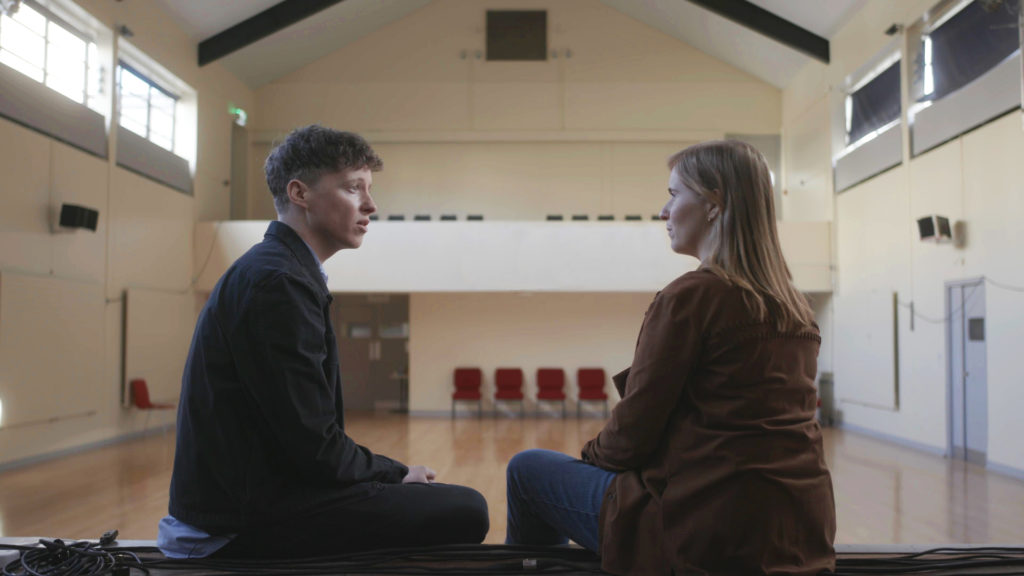How do you adapt a play about the very idea of playing a role? Perhaps the only way it could work is in a film about the very idea of being filmed. There are layers of such metatext wrapped around every scene of How to Tell a Secret, inspired by Shaun Dunne’s play Rapids about the stigmas of living with HIV in Ireland, and co-directed by him with the filmmaker Anna Rodgers. Rodgers saw the play and felt compelled to bring it to screen; in sharing directing duties with Dunne, she has effectively allowed it to keep one foot in each format, a powerful synthesis of media modes that pairs the intimacy and immediacy of theatre with the mass-market scale of the cinema.
For all such formal intricacies, the film is very simple and direct in what it wishes to say: that people living with HIV and on effective treatment cannot pass it on. That this fact remains little-known outside the LGBTQ+ community with which the virus is still prejudicially associated in the popular imagination is an issue for us all, it argues, not least of all for those living with it. The film’s story is theirs, creatively rendered: Dunne and Rodgers have preserved the play’s central conceit of having actors give voice to real testimonials and added to it complications and abstractions film form—editing especially—allows. There are shades of Clio Barnard’s remarkable The Arbor in its intermittent lip-synch scenes, and the same strangely moving effect.

Much of that, in this case, comes from knowing these are people left feeling unempowered to speak for themselves by society’s stigmas. It is foremost an effort to counter and challenge those, to which end it enlists two activists living with HIV: Enda McGrattan, aka the drag queen Veda, and Robbie Lawlor, whose Tommy Tiernan show interview (featured in part here) in April of last year did more for public awareness than any Irish government has ever managed. Both of their outreach efforts, through reproduced music videos and media appearances as well as frank family interviews to camera here, craft a tension between those who have stood up and those who still feel unable to. How to Tell a Secret is an important enquiry of us all and what part we and our culture have played in that.
Its foregrounding of the experience of women—in Ireland an all-but-invisible cohort of those living with HIV—is critical to that, and capably taken in stride by Lauren Larkin, Jade Jordan, and Eva-Jane Gaffney. The trio have an unenviable task in not only playing real people at a remove—they’re playing themselves playing those people, working the pressures of the role into its playing. That was one of the play’s most impressive aspects: an added fourth wall gives the piece all the more scope in its collapsing of actors and characters toward a consideration of performance—the role any of us plays in keeping secrets tied up in ourselves.
All of that is difficult territory, and often deeply challenging too, but How to Tell a Secret’s success—like much great activism—is in remaining upbeat as it relentlessly faces into the task at hand. As much as an adaptation, it is a progression of the play: an indication of forward momentum as much as a reckoning with what remains to be done. It is, particularly in a late little revelation that comes with a great emotional wallop, a mark of what can be achieved by just having the conversation. And it is, in its scale and its scope, its very cinematic presence, an invite to converse we would all do well to accept.
Visit https://www.howtotellasecret.com/cinemas to find out where it is showing near you.

